"Mami Wata" Casts a Spell That's Hard to Resist From Start to Finish
CJ Obasi has crafted a visually stunning and emotionally resonant film that lingers in the mind, solidifying his reputation as a master storyteller.
Written & Directed by: CJ Obasi
Starring: Rita Edochie, Evelyne Ily Juhen, Uzoamaka Aniunoh, Kelechi Udegbe, Emeka Amakeze, and more.
I followed CJ Obasi’s Mami Wata closely throughout 2023. The Nigerian movie traveled fast around the world, after its premiere at the Sundance Film Festival in January, in a fashion that’d make even the famous Ajala green with envy. It toured many more festivals and countries before its eventual release in Nigeria in September. I was there throughout this globetrotting exercise, eagerly lapping up any news update that featured the title or any of its promotional clips. It’s been a long road to this moment, and I’m glad I can finally write about what’s inarguably one of Nollywood’s biggest film exports of its year (and possibly ever).
When the harmony in a village is threatened by outside elements, two sisters —Zinwe and Prisca— must fight to save their people and restore the glory of a mermaid goddess to the land of Iyi.
Mami Wata's reputation preceded it, and rightfully so. A film doesn't make it to Sundance, win awards around the world, and almost make it to the Oscars nomination longlist without a solid story.
In the opening moments of Mami Wata, I was immediately struck by the film's deliberate approach. Shot in black and white, it exudes a rare energy that enhances its cinematography, making every frame visually compelling. This intentional filmmaking is evident from the outset, particularly in the scene where Zinwe (Uzoamaka Aniunoh) stands at the beach. As the waves crash around her, there is a growing sense of disharmony between the character and the land ruled by her mother and the goddess. This unrest is further accentuated by the camera's gentle wobble, mirroring the ocean's movements. I quickly felt drawn into the story. Within just five minutes, Mami Wata had already cast a spell on me, showcasing its meticulous craftsmanship and immersive storytelling—a spell that persisted until the end.
Mami Wata wastes no time in setting up the central conflict. It isn’t long after I become fixated on Zinwe at the beach that the movie establishes she’s the rebellious black sheep of her family. Like the turbulence of the mighty ocean, a recurring motif which CJ Obasi’s script frequently returns to like a living character, Zinwe is the epitome of chaos for a long time in this narrative, in stark contrast to her sister Prisca (Evelyne Ily Juhen), who represents tradition and stability. Where Zinwe challenges authority and doesn’t mind established institutions burning to the ground if that’ll bring some form of change to how things are done in Iyi, Prisca is the more logical one, offering their mother and town matriarch Mama Efe (Rita Edochie) succor and a listening ear. It doesn’t take long to figure out that while this is an elegant story of the titular goddess, at the heart of it is a story about family and contrasting views — good vs. evil, light vs. darkness, good sister vs. bad sister.
The film delves into recurring themes of belief, faith, and the clash between modernity and tradition. We view these through multiple character arcs such as Zinwe whose rebellion is kicked off by the character’s disillusion after Mama Efe, the mouthpiece of the titular Mami Wata goddess, is unwilling (or unable) to save a child from the cold hands of death. Prisca, too, faces her own conflict of faith. She quietly starts to question the way things are done and pushes to do things differently when she can like the time she brought in a doctor to vaccinate the town’s people behind her adopted mother’s back.
Mami Wata excels in creating a lived-in world that although fantastical feels authentic. According to writer and director CJ Obasi, the film was in development for seven years. All that time spent cooking aided in the delivery of a movie that speaks volumes. The writing is sharp and the actors do a good job bringing their characters to life.
I believe Mami Wata is made better be the uncommon choice to film and release in black and white. A stylistic choice that endeared it to my heart since I saw the first promotional teaser over a year ago. Cinematographer Lílis Soares won the Special Jury Prize in the World Dramatic Competition for the film's impressive cinematography.
The film draws a parallel to real-world trends, where ancestral gods and modes of worship are set aside in favor of modern ways of life. This line from Jabi (Kelechi Udegbe), "Mami Wata wey una never take una eye see before," instantly reminded me of all the times I've heard people argue for or against the existence of God (or gods) because they’ve never been seen in physical action before.
Is Mami Wata real? Are gods real?
Mami Wata prompts viewers to contemplate profound questions regarding belief, morality, and the dichotomy of good and evil. By strategically withholding overtly magical elements until the conclusion, the film maintains a sense of mystery and intrigue, encouraging audience members to reflect on its themes long after the credits have rolled.
While the film initially refrains from showcasing overt magical manifestations, it subtly introduces elements that deeply impact the characters' fates, prompting viewers to consider the implications of these events.
Jasper, played by Emeka Amakeze, presents a complex character in Mami Wata. Unlike the outright evil nature attributed to Jabi, Jasper's portrayal offers depth and nuance. CJ Obasi uses Jasper to illustrate the age-old adage that good intentions can pave the road to hell. Jasper, a man shaped by the hardships of war and personal loss, finds himself in Iyi, a place known for its relative peace. Despite his troubled past, and willingness to seize control of Iyi, Jasper does not resort to violence or cruelty. He does not harm the women or children under his care, nor does he mistreat the townspeople. This complexity begs the question: Is Jasper truly a better person than Jabi? The answer is not straightforward, mirroring the complexities of real life. Jasper's character adds depth and intrigue to the film, making him a standout and compelling figure in the narrative.
Mami Wata raises intriguing questions about the nature of reality and belief. Does Mami Wata's lack of intervention during critical moments, such as the mob's attack on Mama Efe or Zinwe's near-drowning, diminish her existence? Conversely, does Prisca's timely rescue of her sister lend credibility to Mami Wata's divine presence? These thought-provoking scenarios invite viewers to ponder the blurred lines between myth and reality. The film's decision to withhold overtly fantastical elements until the climax allows audiences to contemplate these questions, fostering a deeper engagement with the narrative. I commend the script for its subtle approach, allowing viewers to draw their own conclusions about Mami Wata's existence and the nature of faith.
Mami Wata is a captivating film that blends folklore with universal themes, creating a story that resonates on multiple levels. CJ Obasi has crafted a visually stunning and emotionally resonant film that lingers in the mind, solidifying his reputation as a master storyteller.
A little ask…
Having crafted The Orange Pill Nollywood for over a year, each edition involves long hours (days and weeks even) of research, thinking, writing, editing, and design. If you find the insights valuable, here's a simple ask: like the post and/or leave a comment, subscribe (if you haven't), and share it with at least two people you think will love it. Your support means a lot! 🧡
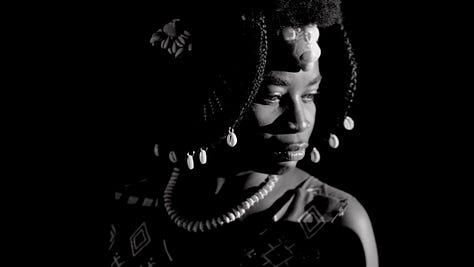
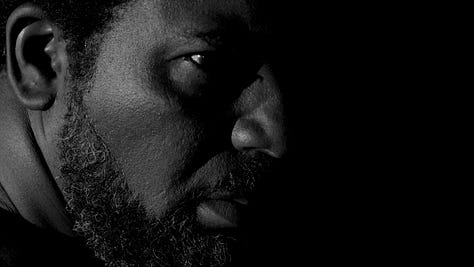
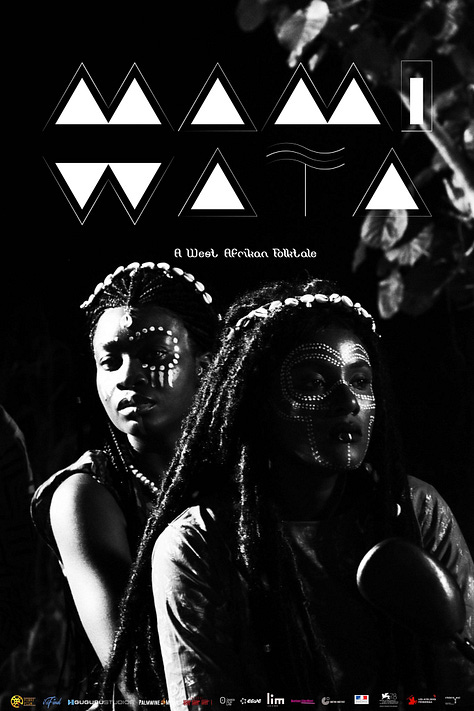
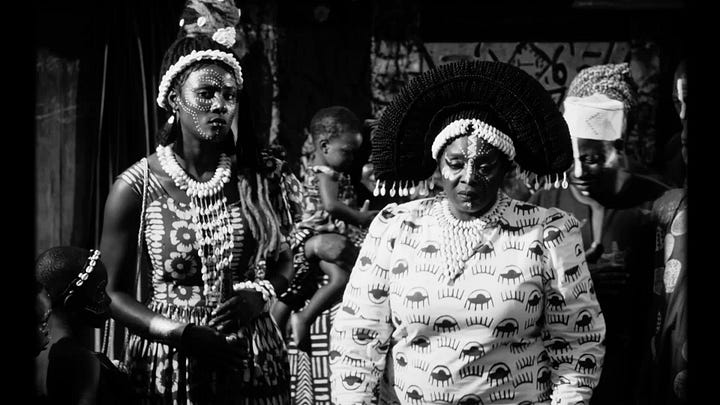
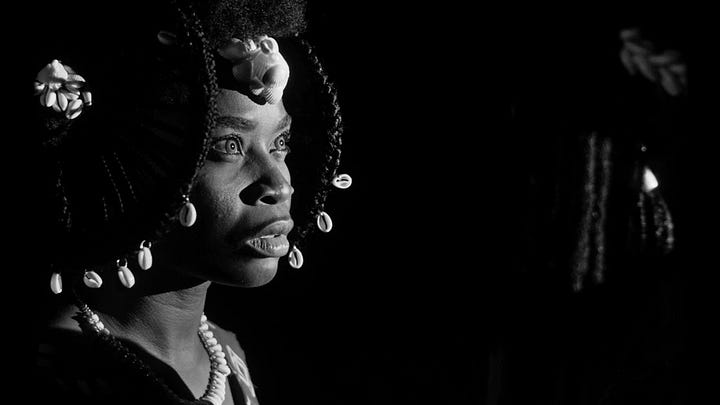
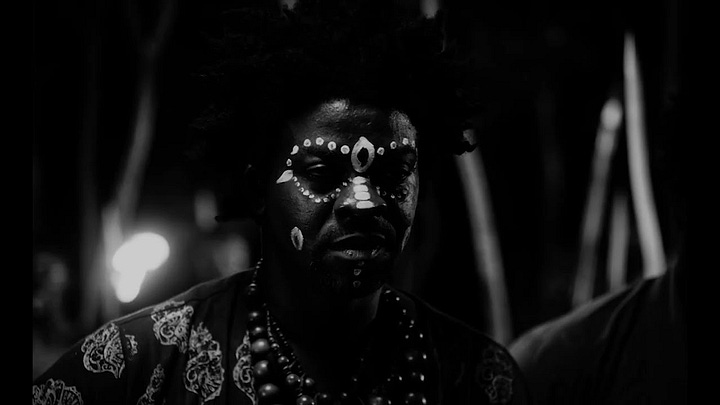
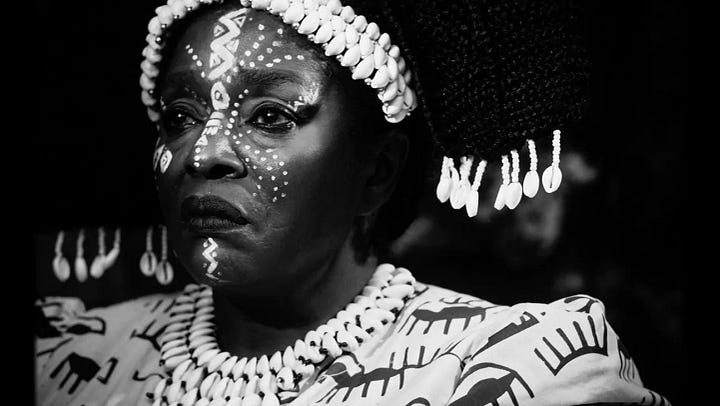


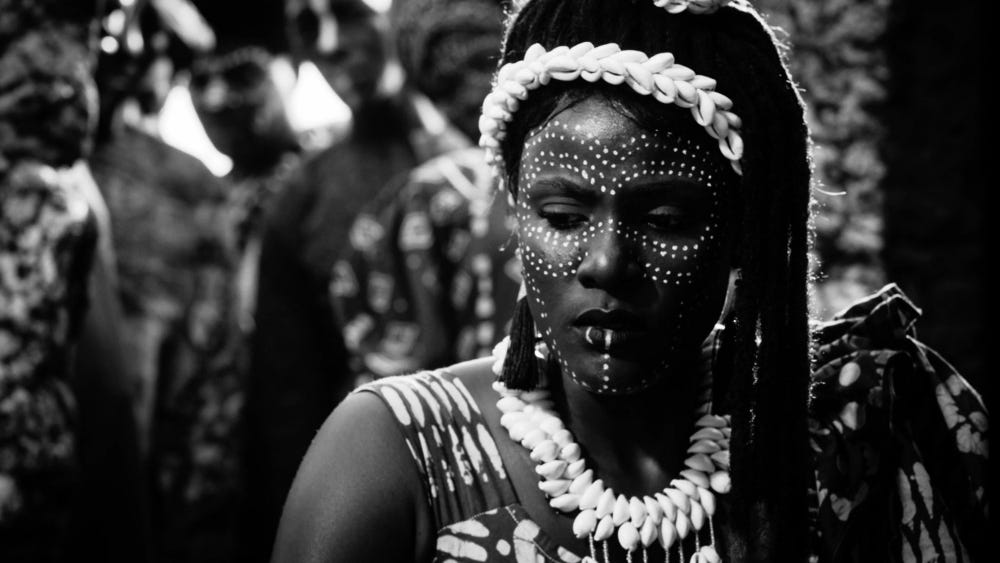
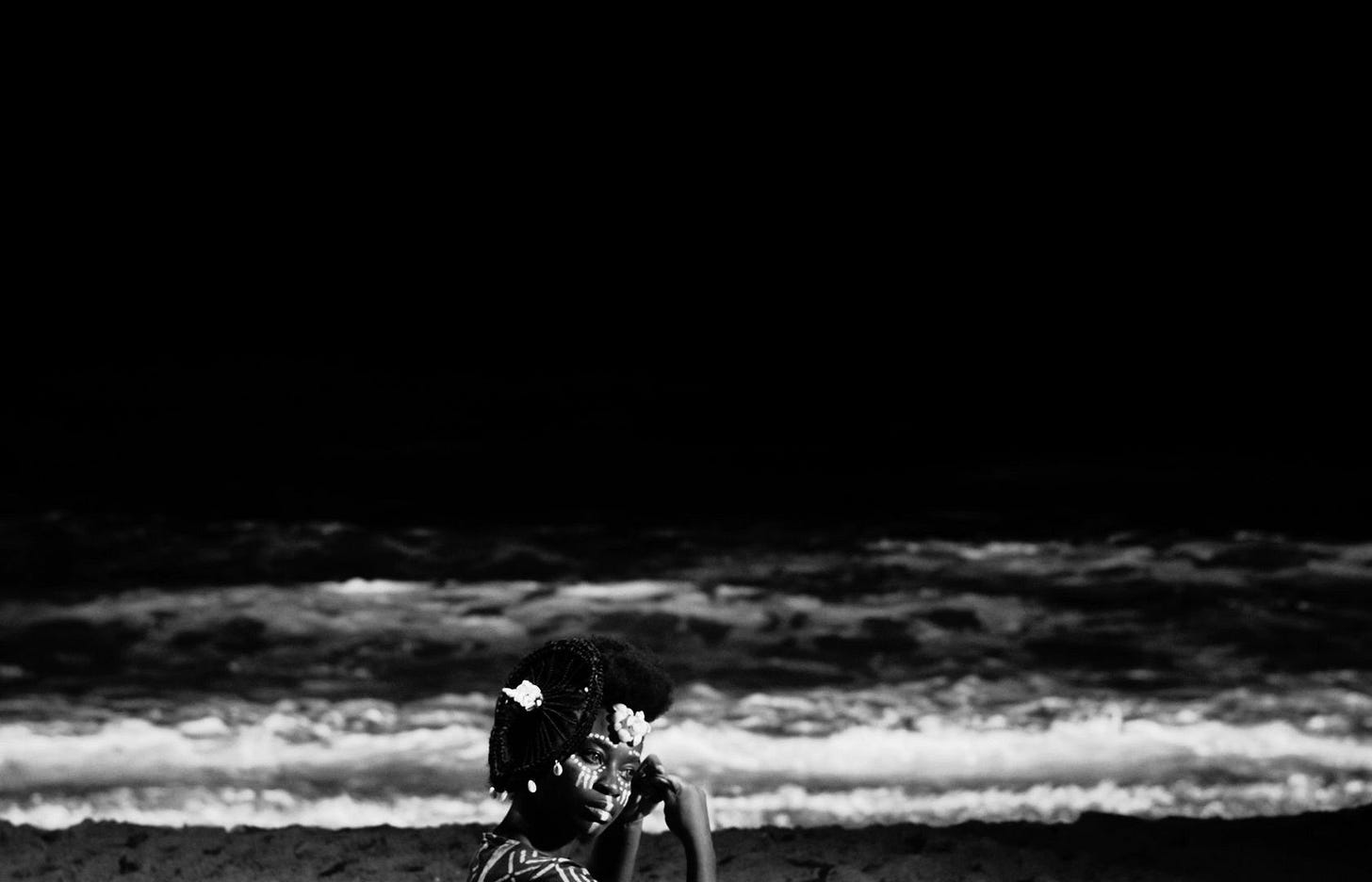
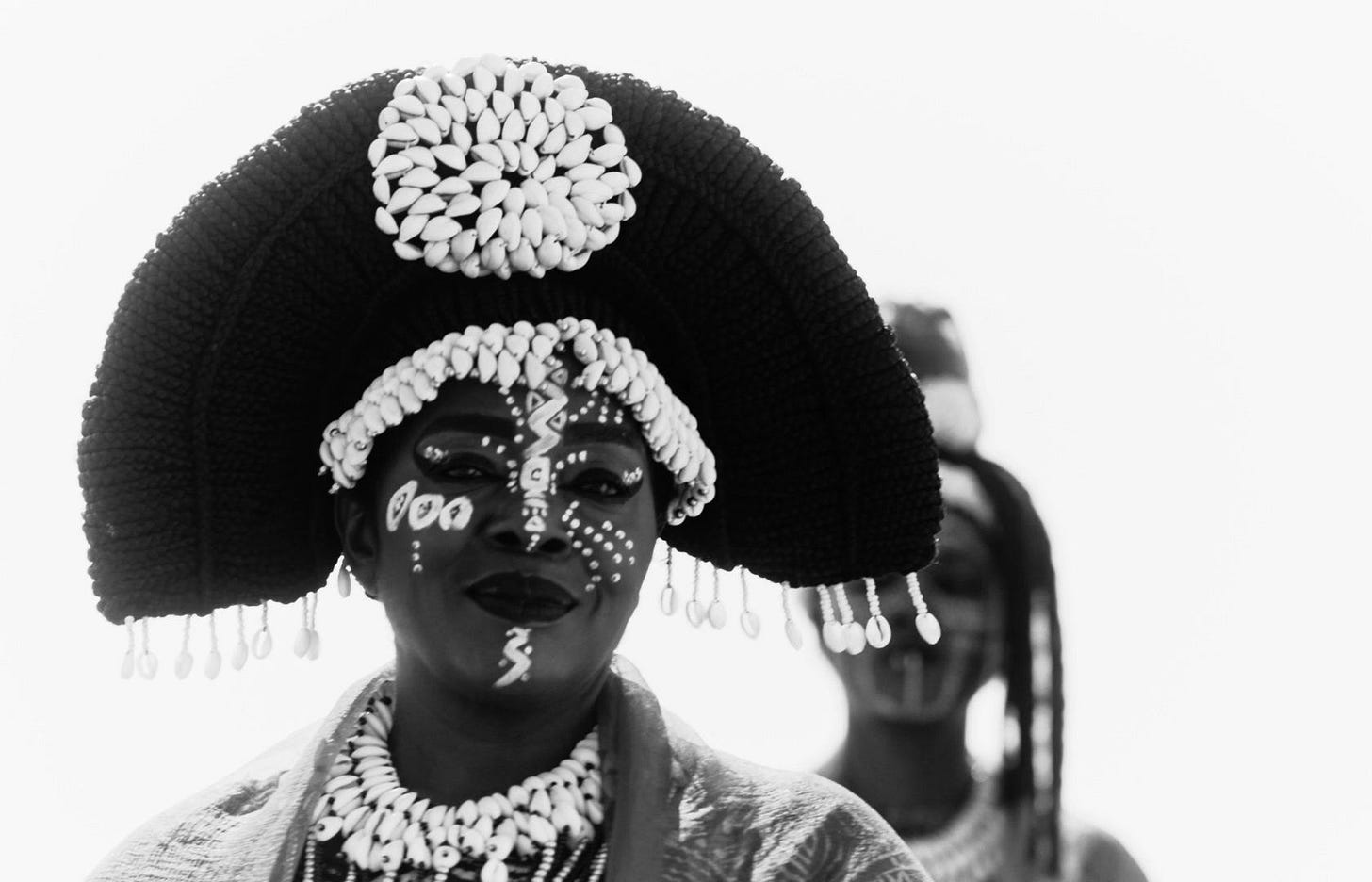
Wow! Can't wait to be swept off my feet by this film like you've clearly been. Is it still showing in theatres? How do we watch?